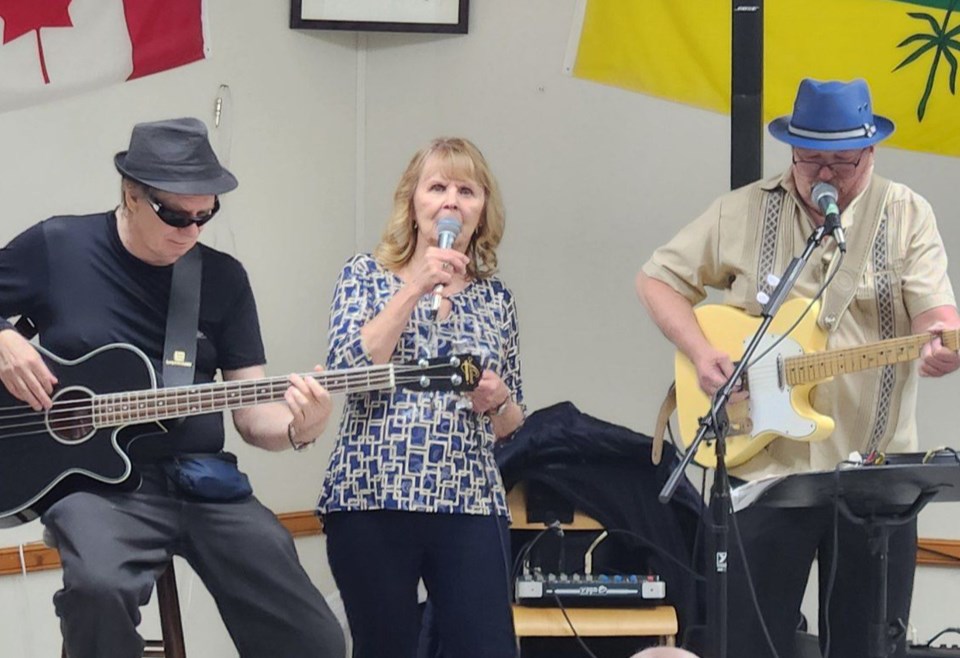ROSTHERN — Memory Lane is a band that calls Saskatoon home but travels to entertain seniors’ groups around central Saskatchewan. Comprised of Rachael Jardine, Gord Lane and Karl Rogalisky, the trio entertained approximately 45 guests at the Rosthern Seniors’ Centre on the evening of April 10.
The centre continues to provide twice-weekly opportunities for older adults to get out and socialize over cards, shuffleboard, and billiards. All are welcome to attend the monthly entertainment evenings to take in some live music and join in refreshments later.
Providing over an hour’s worth of covers of popular traditional country and gospel tunes from Loretta Lynn, Patsy Cline, Hank Williams, and the Everly Brothers, they even offered up a rendition of The Beatles’ “Ob-La-Di, Ob-La-Da.” An interesting side note of this song is that the term “Obladi -Oblada” is said to be Urhobo (a people of southern Nigeria) for “life goes on.” An acquaintance of Paul McCartney, Jimmy Scott-Emuakpor, who was a Nigerian conga player, used the expression that McCartney and Lennon then wrote into a song. Whether the song was the sing-along, “He’s Got the Whole World in His Hands” or Alabama’s “High Cotton,” the music reached out to the audience and brought them into it.
Music has been shown to activate almost all of the diverse networks and memory regions of the brain, including those involved in well-–°¿∂ ”∆µ, learning, cognitive function, quality of life, and, interestingly, music activates the motor system. There is only one other situation in which so many brain networks are activated at the same time, and that is during participation in social activities. It has been theorized that it is the activation of the brain’s motor system that allows individuals to pick out the beat of the music. Music can relax or energize the body because brain waves can synchronize with the rhythm of a song.
Every year of a person’s life brings new developments, and growing older does not mean that life stops changing. As older adults enter retirement and assisted living communities, they are faced with new routines and new mental and physical challenges. By engaging with music, both as a participant and as a listener, seniors benefit greatly. While there is no one best type of musical intervention, magical song, or perfect genre to make hard things in life easier, music can be a powerful agent of change and when combined with social interactions, it is a win-win situation. The board of the Rosthern Seniors’ Club strives to provide those opportunities to any senior who wishes to join irrespective of where they call home.




